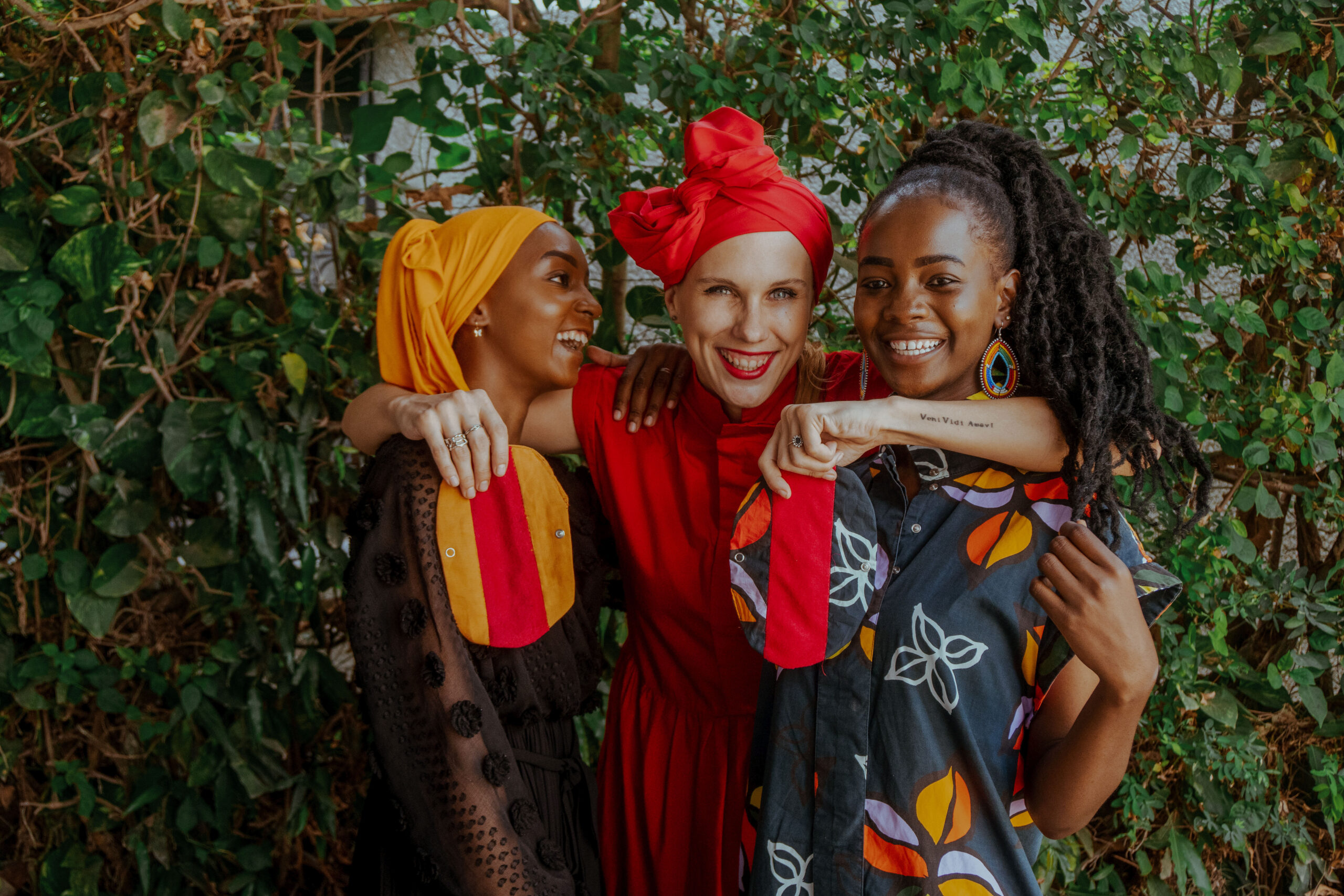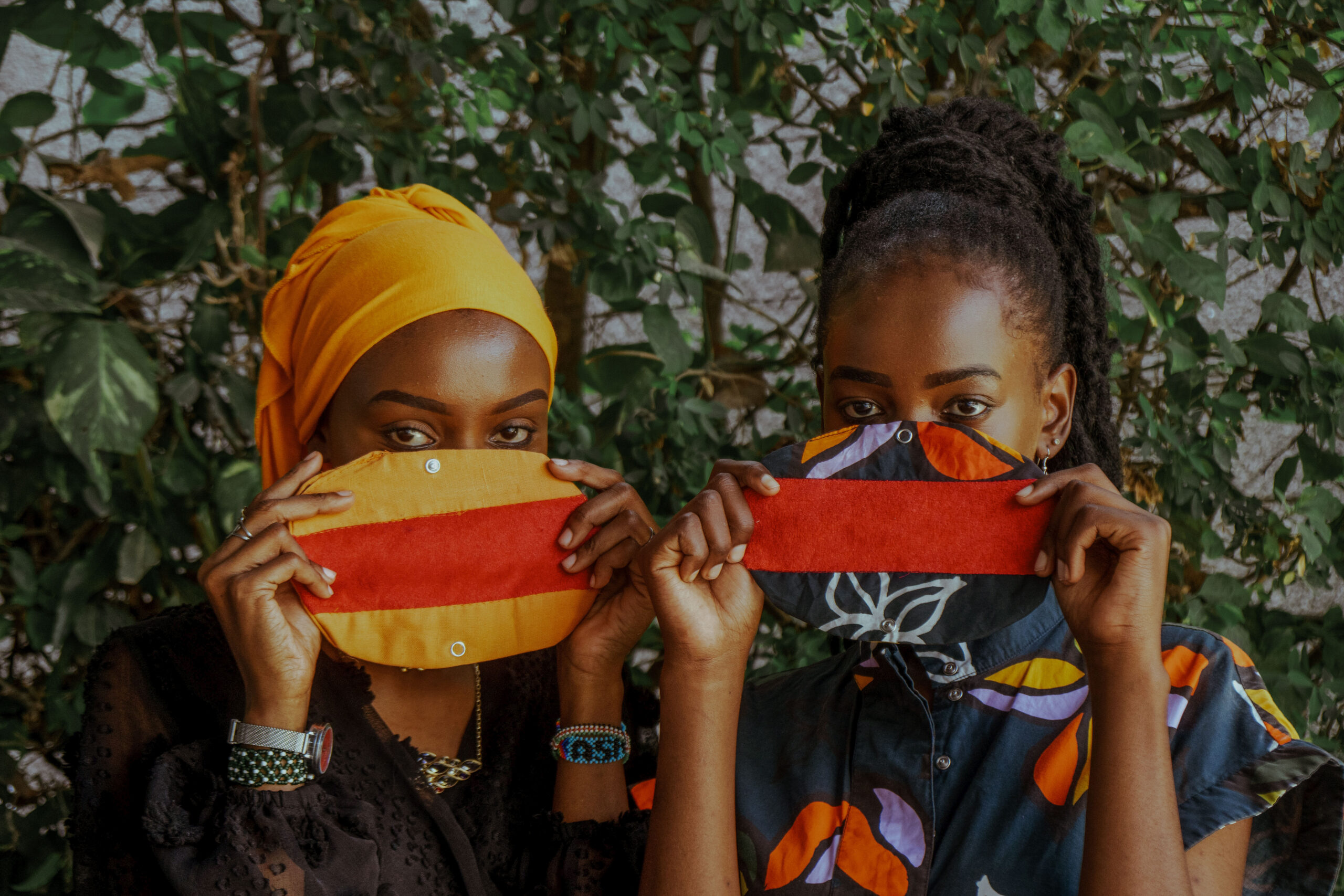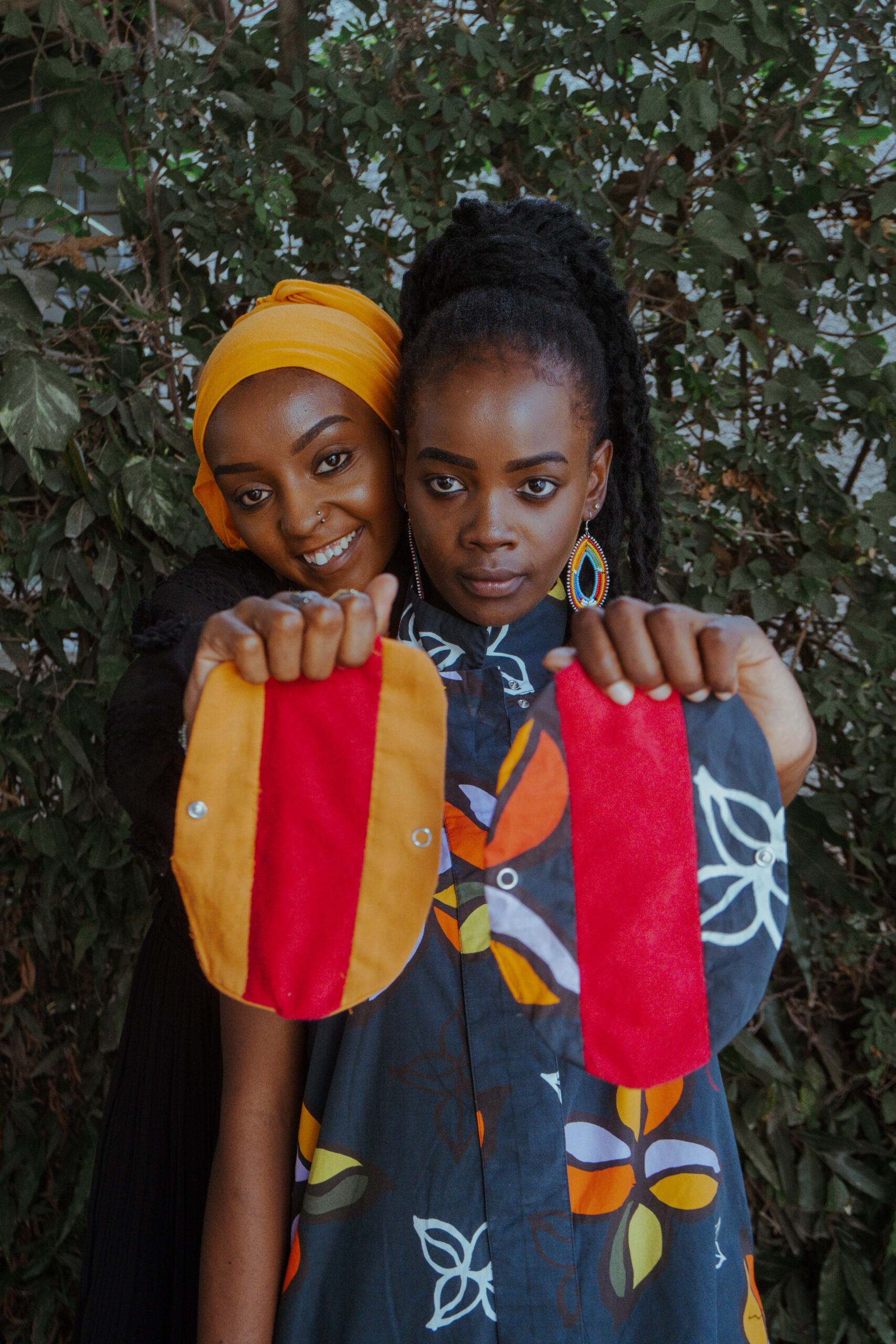Youth and female empowerment and education program Sewing Together, led by Maja Kotala, is currently tackling menstrual poverty in Kenya by sewing reusable pads for young women who cannot access or afford hygiene products. Furthermore, the program provides free design and sewing classes to empower women.

According to the founder, Maja:
My goal is very simple – I want to give wonderful women, what I was lucky enough to get from life. It is mostly independence that can be achieved by education in running a business and learning practical design and sewing skills free of charge.
Since I moved to Kenya, many times I have not been able to buy basic hygiene products in stores. I have decided to do more research and I found out what is menstrual poverty. In Kenya, it has two dimensions, the lack of access to hygiene products and the fact that many women cannot afford them. Lack of proper education causes young girls to exchange dirty sanitary pads or use unsanitary forms to keep going to school during their menstruation. I believe the issue is in many countries across Africa and even worldwide.
I believe if we want to help women in our first steps we should try to break the taboo around menstruation. If we can speak about it? We can empower each other and help each other.
The long term solution? Would be sewing reusable pads, which we already started as Sewing Together two years ago together with my students. To lower the cost of production and share awareness about the issue I approached many designers to help. NAGO, LUKASZ JEMIOL, THE ODDER SIDE, KAASKAS and more offered their organic offcuts from production to help us. The world is turning into sustainability, we believe this is the way to do it.

The organization is currently running this awareness campaign to encourage more people and other fashion houses worldwide to join forces and proffer solutions.
According to the organization:
Formative research shows that girls face monthly challenges, with 65% of women and girls in Kenya unable to afford sanitary pads. Only 50% of girls say that they openly discuss menstruation at home. Just 32% of rural schools have a private place for girls to change their menstrual products. And only 12% of girls in Kenya would be comfortable receiving the information from their mother.Period poverty is so prevalent in Kenya that 10% of 15-year-old girls were having sex to pay for period products. Period poverty contributes to global and regional gender inequity, as women are forced to solicit help from men in order to satisfy a basic health need.
Menstruation for Kenyan women starts as early as age 6-7. Many young girls in Kenya, who do not have access to safe, hygienic products stay at home throughout the cycle, with huge consequences, such as expulsion from school, early pregnancy, or the subsequent lack of earnings.
The average female students miss out on 20% of the school year because they are on their period. It is estimated that about 1 million women miss school per month.
Another important aspect is the correct disposal of pads. Conventional disposable sanitary pads are 90% plastic. … If we consider the additional materials, such as packaging, plastic wings, adhesives and super absorbent gels (plastic) – each pad contains the equivalent of four plastic bags (about 2 grams of non-biodegradable plastic) An average sanitary pad can take up to 700 years to decompose. In Kenya, young girls bury dirty sanitary pads as there is no way to dispose of them properly.

For more information, visit their website: www.mkotala.com or head over to their Instagram page: @sewing.together




